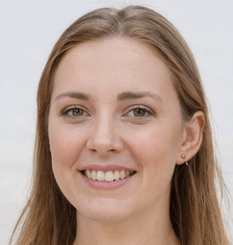Africare in Nigeria will convene a stakeholder summit on April 12th in Abuja to release the results of a six-year malaria prevention program in Nigeria that was implemented with the support of ExxonMobil.
“The Africare MAPS-C project has helped advance our goals of working with partners to provide malaria prevention therapies to communities in Nigeria and helping to improve health infrastructure,” said Kevin Murphy, president of ExxonMobil Foundation. “We were proud to support Africare in training health workers in electronic data capture and timely sharing of health information.”
The Malaria Prevention in Mobil Producing Nigeria Supplier Communities (MAPS-C) project ran from 2011 through 2017 and was focused on four local government areas in Akwa Ibom and Rivers States (Eket, Ibeno, Bonny and Ogu/Bolo) reaching over 90,000 people. Beneficiaries included children under five and pregnant women in households within these communities.
Among the top-line results of the evaluation of the MAPS-C project, it was found that:
- The percentage of under-five children who received Artemisinin-based Combination Therapy (ACT) as a treatment for malaria increased from 21% at the start of the project, to 74% in 2016
- Percentage of persons with suspected malaria that were tested increased from less than 30% at the start of the project, to more than 90% in 2016.
- Overtreatment reduced from 97% in 2015 to 2% in 2017
- Awareness increased from about 30% to over 80% (the target in the National Malaria Elimination Strategy for Nigeria)
For more details and statistics on Africare’s work, click here Africare-2pgr-v3MAPS-C Nigeria Digital
Africare’s Innovation Hubs: Creating Local Solutions to Local Challenges
In most African countries, a fever equals malaria. And this is true for kids too. However, new field tests for malaria are revealing that the majority of patients (and children) presenting with fever might not have malaria or malaria alone. So what do we now do? How do we tell a child’s caregiver how best to help their child back to health if they are not malaria positive?
Africare is tackling this HUGE question that impacts most of sub-Saharan Africa at The Institute for Child Wellness in Africa’s Innovation Hub at the University of Malawi. Through cost-effective research, Malawian researchers are determining how many fevers have more than malaria at their root.
To support and encourage this type of local innovation, Africare, in partnership with Dalhousie University, has formed a local Innovation Hub that provides training and mentoring, cross-discipline collaboration, and seed funding to test out solutions in real world settings. Too often in most of the continent, best practice and new evidence are not brought to bear in the community, because proposed changes are not locally-driven. The need to foster, mentor, and support local innovators to work on solving local problems has been recognized by African leaders as an urgent problem. Lack of training, funding opportunities, and mentors have proven to be major obstacles. Obstacles that Africare is working to overcome.
At TICWA, Innovation Hub teams are working to explore what they would consider the most pressing local issues for child survival and wellness. Teams are granted modest seed funding, and then are mentored for a year to find community-based solutions to the local challenge they identified.
Current projects that are being tested at TICWA’s Innovation Hub include questions as diverse as figuring out how well homemade mosquito traps work to determining how many feverish under-five children at a health facility in Chikwawa, Malawi have more than just malaria.
Africare’s Innovation Hubs are equipping Africa’s innovators to tackle local challenges right at home.
Africare Nigeria’s Upgrade to Gas Campaign News Features
https://nigeriacleancooking.org/africare-nigeria-launches-upgrade-to-gas-campaign
https://www.nextedition.com.ng/ngo-seeks-awareness-creation-cooking-gas/
https://nigeriahealthonline.com/2017/07/27/fg-advocates-use-of-cooking-gas.nho/
https://guardian.ng/features/household-air-pollution-causes-4-3m-premature-deaths-yearly-says-who/

Barbara Meier schreibt seit vielen Jahren für die NPAlliance Ratgeber und Testberichte. Dabei legt sie großen Wert auf die Ausführlichkeit sowie Richtigkeit ihrer Artikel. Sie zählt zu den wenigen Experten in ihrem Gebiet und hat sich über die letzten Jahren einen Namen in der Gesundheitsbranche gemacht.
